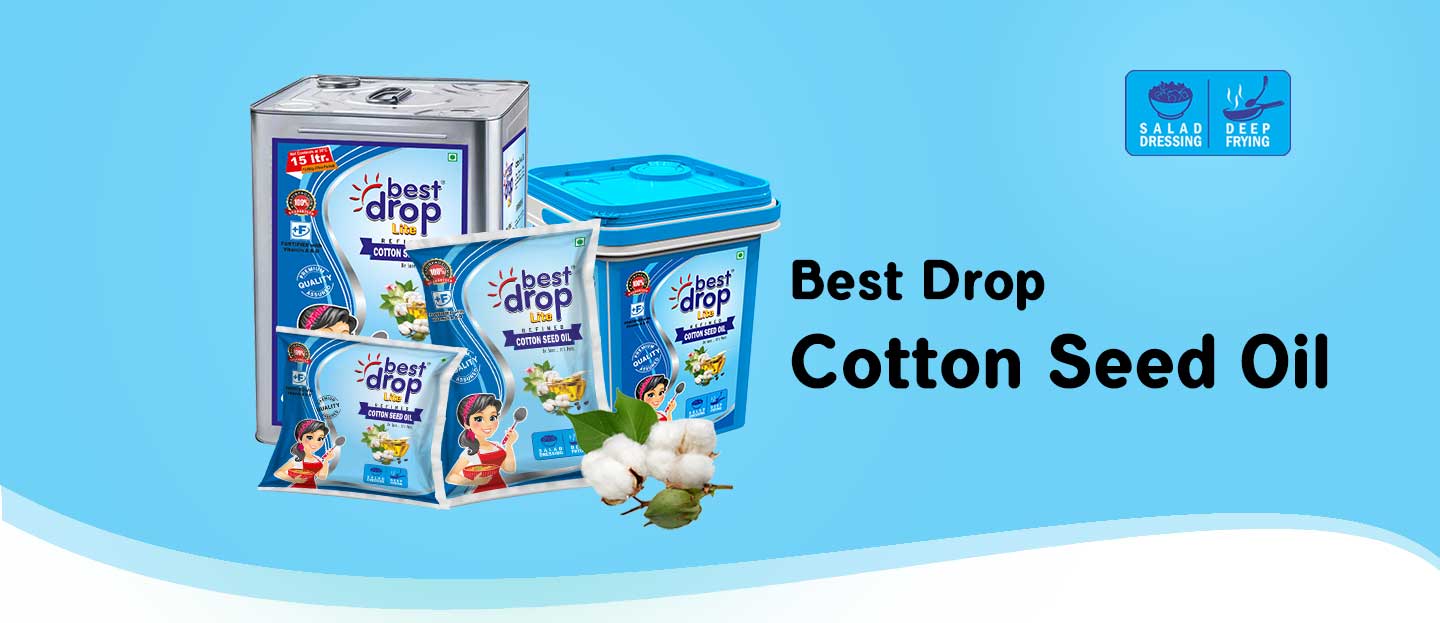What is Cotton Seed Oil :
Cotton Seed Oil is made from the seeds of cotton plants. Similar to other seed oils, the cotton seeds are husked, revealing an oil-rich kernel, which can then be pressed to extract the valuable oil. This oil, which is praised for being low in trans fats, is often used as cooking oil because it can help bring out the flavour of foods rather than masking them. It is a commonly used vegetable oil that’s derived from the seeds of cotton plants. The cottonseed oil is high in polyunsaturated fat which can help lower LDL (“bad” cholesterol) and increase HDL (“good” cholesterol).
It is commonly used in processed foods because of its ability to extend shelf life. The cottonseed oil products include:
• Potato chips
• Cookies and crackers
• Margarine
• Mayonnaise
• Salad dressing
Cotton Seed Oil contains high concentrations of vitamin E, fatty acids, and antioxidants that have many benefits for your skin, including:
- Moisturizing
- Anti-aging
- Anti-inflammatory properties
- Anticancer effects
- Lowers inflammation
- Reduces the risk of cardiovascular diseases
- Wound healing
- Cottonseed Oil Benefits & Uses
- Speeds up Healing
- Improves Cognitive Health
- Anticancer Effect
- Skin Care
- Boosts Immune System
- Reduces Inflammation
- Improves Heart Health
- Side Effects of Cottonseed Oil
- Heart Issues
- Toxin Issues
- Skin Irritation
- Reproductive Health








